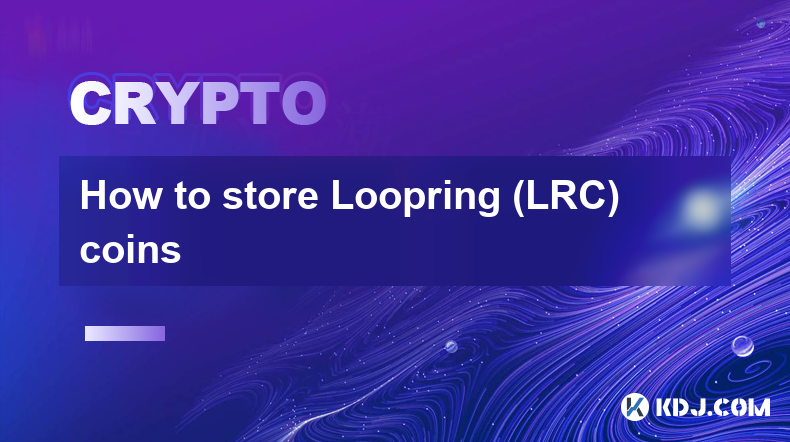-
 Bitcoin
Bitcoin $94,357.1547
-1.78% -
 Ethereum
Ethereum $1,799.2884
-2.02% -
 Tether USDt
Tether USDt $1.0000
-0.02% -
 XRP
XRP $2.1599
-2.27% -
 BNB
BNB $588.2103
-1.94% -
 Solana
Solana $144.9680
-1.18% -
 USDC
USDC $1.0000
0.01% -
 Dogecoin
Dogecoin $0.1709
-3.29% -
 Cardano
Cardano $0.6777
-4.43% -
 TRON
TRON $0.2488
0.57% -
 Sui
Sui $3.3247
0.98% -
 Chainlink
Chainlink $13.9783
-2.41% -
 Avalanche
Avalanche $20.1607
-1.49% -
 UNUS SED LEO
UNUS SED LEO $9.0621
0.88% -
 Stellar
Stellar $0.2679
-1.50% -
 Shiba Inu
Shiba Inu $0.0...01283
-1.94% -
 Toncoin
Toncoin $3.0225
-2.19% -
 Hedera
Hedera $0.1768
-3.24% -
 Bitcoin Cash
Bitcoin Cash $355.7577
-2.97% -
 Hyperliquid
Hyperliquid $20.2802
-2.11% -
 Litecoin
Litecoin $85.9280
-0.76% -
 Polkadot
Polkadot $3.9901
-1.16% -
 Dai
Dai $1.0000
0.01% -
 Monero
Monero $275.6374
-0.57% -
 Bitget Token
Bitget Token $4.3022
-1.52% -
 Ethena USDe
Ethena USDe $1.0004
-0.01% -
 Pi
Pi $0.5904
-0.04% -
 Pepe
Pepe $0.0...08209
0.20% -
 Aptos
Aptos $5.1702
-0.43% -
 Uniswap
Uniswap $5.0460
-1.11%
How to store Loopring (LRC) coins
For secure and convenient storage of Loopring (LRC) coins, consider the official Loopring Wallet, MetaMask, or Ledger Nano X, each offering unique features to meet your storage needs.
Dec 07, 2024 at 08:26 am

How to Store Loopring (LRC) Coins
The advent of blockchain technology has revolutionized the financial landscape with the introduction of cryptocurrencies such as Loopring (LRC). As the popularity of LRC and other cryptocurrencies continues to grow, one crucial aspect to consider is their safe and secure storage. This comprehensive guide will delve into the various methods available to store LRC coins, empowering you to make informed decisions about protecting your digital assets.
Understanding Cryptocurrency Wallets
Before exploring the specific storage methods for LRC coins, it is essential to establish a foundational understanding of cryptocurrency wallets. In the realm of blockchain, wallets are digital devices or software programs that serve as repositories for storing and managing cryptocurrencies. They provide a secure environment for holding your private keys, which are essential for accessing and conducting transactions involving your cryptocurrency holdings.
There are two main categories of cryptocurrency wallets: software wallets and hardware wallets. Software wallets, also known as hot wallets, are applications that reside on your computer, mobile device, or web browser. They offer convenience and flexibility but may be more susceptible to security risks, such as hacking or malware attacks. On the other hand, hardware wallets, or cold wallets, are physical devices dedicated to securely storing private keys offline. They provide enhanced security but may be less convenient than software wallets.
Choosing the Right Wallet for Loopring (LRC) Coins
With a basic understanding of cryptocurrency wallets, you can now navigate the available options for storing LRC coins. The specific wallet you choose will ultimately depend on factors such as your risk tolerance, frequency of trading, and amount of LRC coins you possess.
1. Official Loopring Wallet
The official Loopring Wallet is a user-friendly software wallet designed specifically for storing and managing LRC coins. It seamlessly integrates with the Loopring ecosystem, allowing you to access a range of features and services, including trading, staking, and decentralized exchange (DEX) functionality. As a non-custodial wallet, it provides full control over your private keys, ensuring your LRC coins remain solely under your ownership and management.
Features:
- Non-custodial, granting complete control over your private keys
- Seamless integration with the Loopring ecosystem
- Support for LRC coins and other assets on the Loopring network
- Simple and intuitive user interface
Pros:
- Convenience and accessibility of a dedicated LRC wallet
- Enhanced security measures for protecting your digital assets
- Extensive support and integration with Loopring services
Cons:
- Only supports assets within the Loopring ecosystem
- May require more technical knowledge for advanced features
2. MetaMask
MetaMask stands out as a versatile and feature-rich software wallet that supports storing and transacting with LRC coins alongside a wide range of other cryptocurrencies. It is renowned for its intuitive user interface and seamless integration with various blockchain networks, making it a popular choice among crypto enthusiasts. While MetaMask operates as a custodial wallet, it offers recovery options through seed phrases, providing a balance between convenience and security.
Features:
- Custodial wallet with user-friendly interface
- Multi-chain compatibility, supporting multiple blockchain networks
- Access to decentralized applications (dapps) and Web3 services
- Integration with hardware wallets for enhanced security
Pros:
- Wide selection of supported cryptocurrencies, including LRC
- Beginner-friendly interface, suitable for users at all levels
- Extensive ecosystem support and dapp integration
Cons:
- Custodial nature, with MetaMask holding your private keys
- Potentially vulnerable to phishing attacks or security breaches
- May require a basic understanding of blockchain concepts
3. Ledger Nano X
The Ledger Nano X is a renowned hardware wallet that prioritizes security and offline storage for your LRC coins. It takes the form of a portable, easy-to-use device that keeps your private keys isolated from online threats and potential vulnerabilities. The Nano X supports a vast array of cryptocurrencies, including LRC, and provides a secure and convenient way to manage your digital assets.
Features:
- Industry-leading security with offline storage of private keys
- Bluetooth and USB connectivity for convenient access
- Large display and intuitive interface for managing transactions
- Support for multiple cryptocurrencies, including LRC
Pros:
- Unparalleled security for offline storage of your LRC coins
- Peace of mind knowing your private keys are protected from online attacks
- Easy-to-use interface for managing your digital assets
- Widely recognized and trusted hardware wallet brand
Cons:
- Higher cost compared to software wallets
- Requires a physical device for access
- May not be suitable for users requiring frequent transactions
Disclaimer:info@kdj.com
The information provided is not trading advice. kdj.com does not assume any responsibility for any investments made based on the information provided in this article. Cryptocurrencies are highly volatile and it is highly recommended that you invest with caution after thorough research!
If you believe that the content used on this website infringes your copyright, please contact us immediately (info@kdj.com) and we will delete it promptly.
- DOGE price analysis: Targeting 0.1755 - 0.1815 on rebound
- 2025-05-05 09:50:12
- Ondo Gains on Sentiment, Sei’s Deal Sparks Buzz, While Web3 ai’s 1,747% ROI Potential Gets Real Attention from Traders
- 2025-05-05 09:50:12
- Bitcoin (BTC) Is at a Pivotal Moment, Trading at a Critical Support Level of $91,200
- 2025-05-05 09:46:12
- As the cryptocurrency market heats up, seasoned investors are eyeing the next big winner with the potential for explosive returns.
- 2025-05-05 09:46:12
- Justin Sun's TRON Upgrade Met with Enthusiasm, but Hack Overshadows the Event
- 2025-05-05 09:44:56
- Will Binance Coin (BNB) Reach the Coveted $1,000 Mark in the Near Future?
- 2025-05-05 09:44:56
Related knowledge

BSV transaction fees suddenly increased? How to adjust the handling fee to save costs?
May 02,2025 at 06:42am
Understanding BSV Transaction FeesBSV (Bitcoin SV) aims to fulfill the original vision of Bitcoin as a peer-to-peer electronic cash system. One of the key elements in this system is the transaction fee, which compensates miners for including transactions in the blockchain. Recently, users have noticed a sudden increase in BSV transaction fees, which can...

Does BSV transaction require real-name authentication? Is anonymous trading feasible?
May 03,2025 at 03:14pm
The question of whether BSV (Bitcoin SV) transactions require real-name authentication and whether anonymous trading is feasible is a complex one, deeply intertwined with the broader dynamics of cryptocurrency regulations and blockchain technology. Let's delve into these aspects to provide a comprehensive understanding. Understanding BSV and Its Transac...

How to solve the high slippage of BSV transactions? How to choose between limit and market orders?
May 02,2025 at 09:01pm
High slippage can be a significant concern for traders dealing with Bitcoin SV (BSV) transactions. Slippage refers to the difference between the expected price of a trade and the price at which the trade is actually executed. This can occur in fast-moving markets or when there is low liquidity. To address this issue, understanding the mechanics of slipp...

What if BSV transactions are frozen? How to contact customer service to unblock the account?
May 05,2025 at 05:01am
When dealing with Bitcoin SV (BSV) transactions, encountering issues such as frozen transactions can be a stressful experience. This article will guide you through the process of understanding why BSV transactions might be frozen and how to contact customer service to unblock your account. We will cover the reasons behind frozen transactions, steps to t...

What if BSV node synchronization is slow? How to optimize local wallet performance?
May 03,2025 at 04:35pm
When dealing with BSV (Bitcoin SV) node synchronization and optimizing local wallet performance, it's crucial to understand the underlying issues and implement effective solutions. Slow synchronization and poor wallet performance can significantly hinder your experience with the BSV network. This article will delve into the reasons behind slow BSV node ...

How to check BSV transaction records? How to use the blockchain browser?
May 03,2025 at 06:50am
Checking BSV (Bitcoin SV) transaction records and using a blockchain browser are essential skills for anyone involved in the cryptocurrency space. These tools allow you to verify transactions, check wallet balances, and understand the flow of funds on the blockchain. This article will guide you through the process of checking BSV transaction records and...

BSV transaction fees suddenly increased? How to adjust the handling fee to save costs?
May 02,2025 at 06:42am
Understanding BSV Transaction FeesBSV (Bitcoin SV) aims to fulfill the original vision of Bitcoin as a peer-to-peer electronic cash system. One of the key elements in this system is the transaction fee, which compensates miners for including transactions in the blockchain. Recently, users have noticed a sudden increase in BSV transaction fees, which can...

Does BSV transaction require real-name authentication? Is anonymous trading feasible?
May 03,2025 at 03:14pm
The question of whether BSV (Bitcoin SV) transactions require real-name authentication and whether anonymous trading is feasible is a complex one, deeply intertwined with the broader dynamics of cryptocurrency regulations and blockchain technology. Let's delve into these aspects to provide a comprehensive understanding. Understanding BSV and Its Transac...

How to solve the high slippage of BSV transactions? How to choose between limit and market orders?
May 02,2025 at 09:01pm
High slippage can be a significant concern for traders dealing with Bitcoin SV (BSV) transactions. Slippage refers to the difference between the expected price of a trade and the price at which the trade is actually executed. This can occur in fast-moving markets or when there is low liquidity. To address this issue, understanding the mechanics of slipp...

What if BSV transactions are frozen? How to contact customer service to unblock the account?
May 05,2025 at 05:01am
When dealing with Bitcoin SV (BSV) transactions, encountering issues such as frozen transactions can be a stressful experience. This article will guide you through the process of understanding why BSV transactions might be frozen and how to contact customer service to unblock your account. We will cover the reasons behind frozen transactions, steps to t...

What if BSV node synchronization is slow? How to optimize local wallet performance?
May 03,2025 at 04:35pm
When dealing with BSV (Bitcoin SV) node synchronization and optimizing local wallet performance, it's crucial to understand the underlying issues and implement effective solutions. Slow synchronization and poor wallet performance can significantly hinder your experience with the BSV network. This article will delve into the reasons behind slow BSV node ...

How to check BSV transaction records? How to use the blockchain browser?
May 03,2025 at 06:50am
Checking BSV (Bitcoin SV) transaction records and using a blockchain browser are essential skills for anyone involved in the cryptocurrency space. These tools allow you to verify transactions, check wallet balances, and understand the flow of funds on the blockchain. This article will guide you through the process of checking BSV transaction records and...
See all articles




















































































